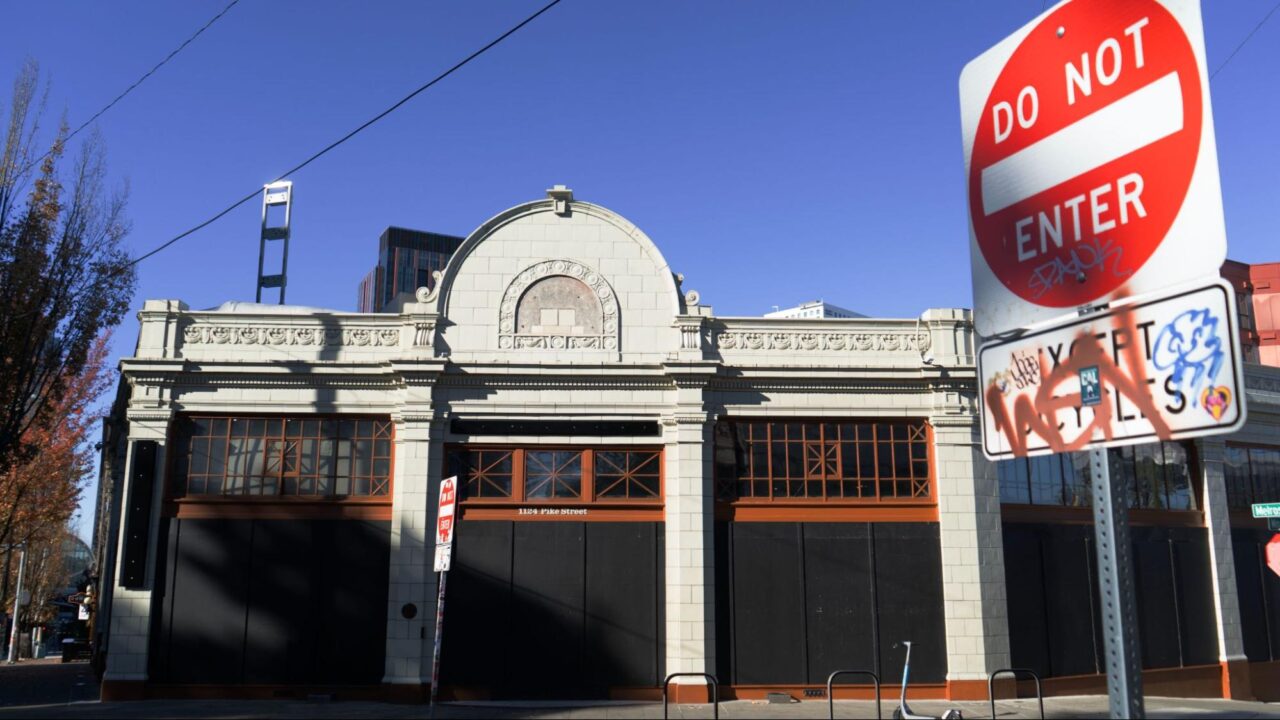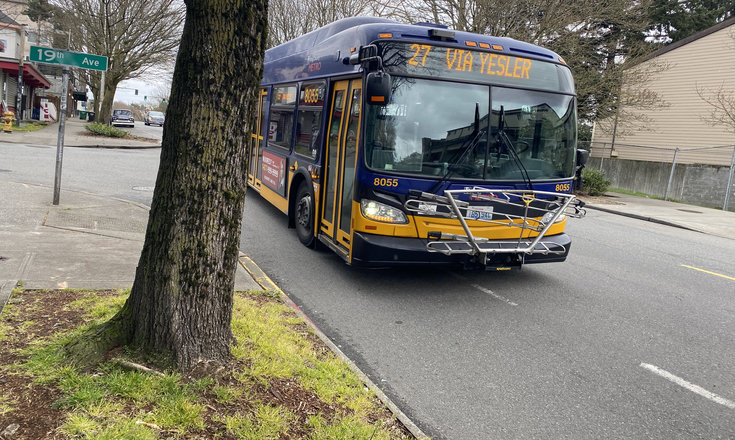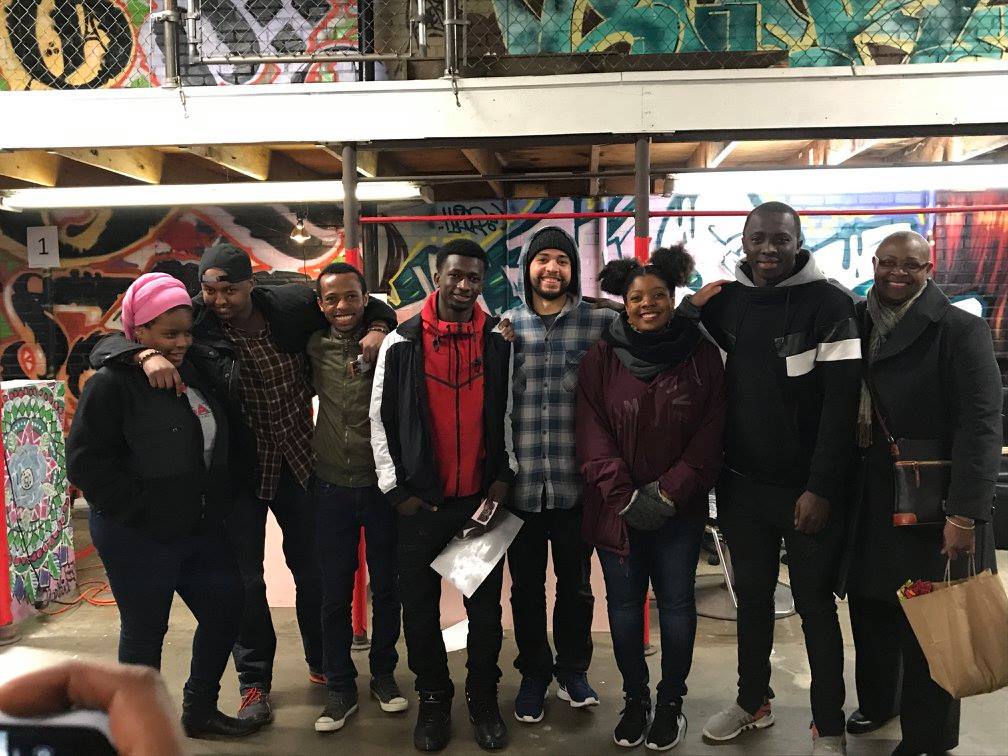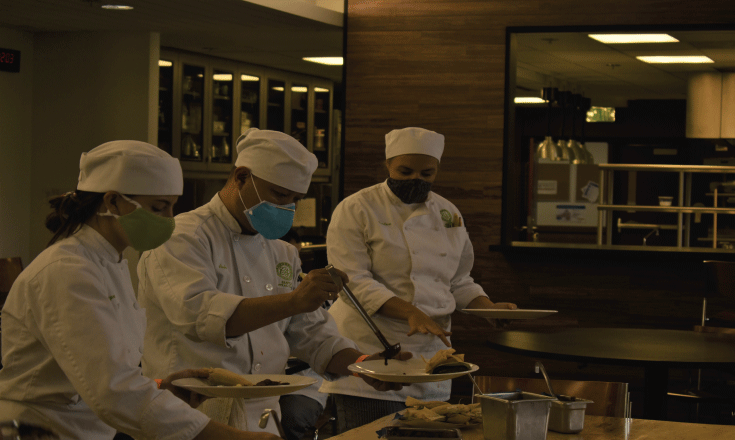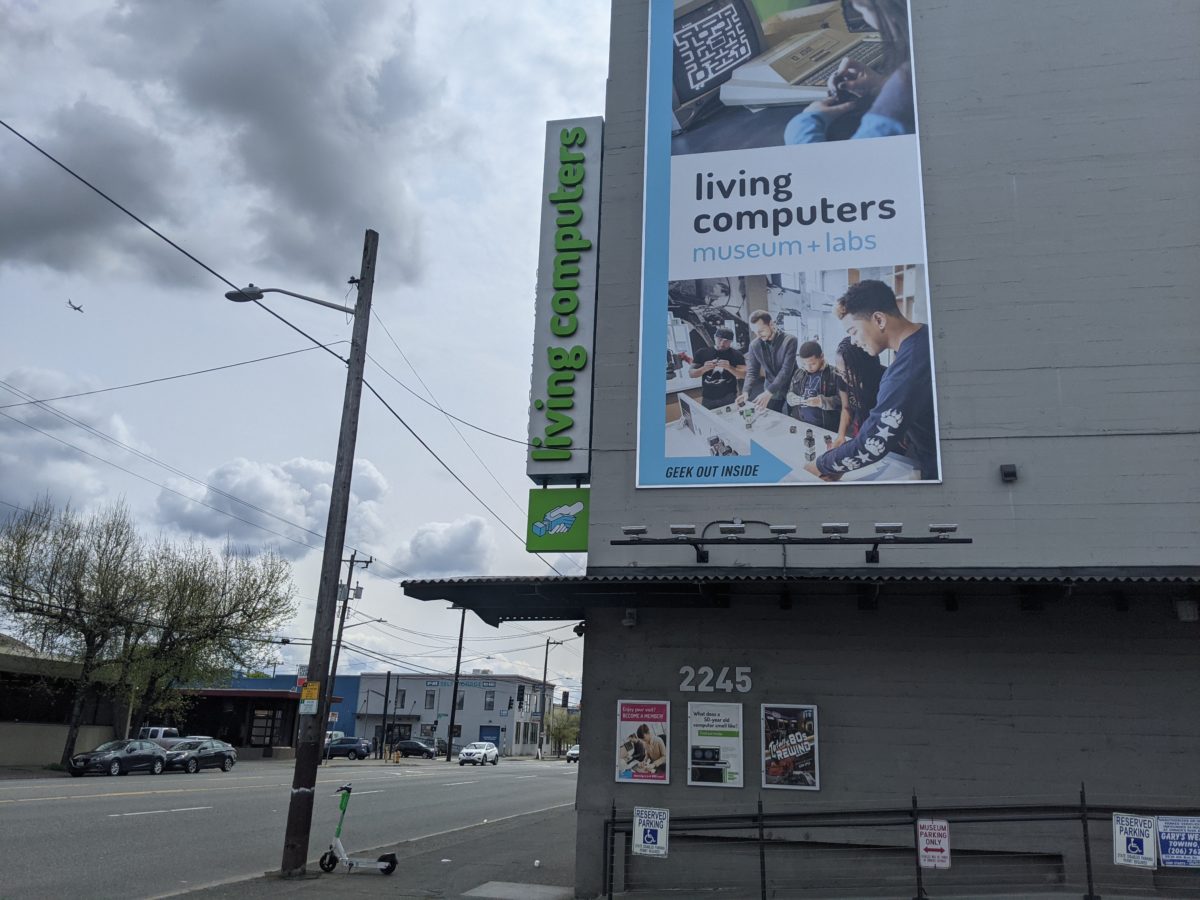Capitol Hill Roastery, hundreds of stores suddenly close amid labor battle
Before sunrise on Sept. 25, Starbucks workers at the flagship Capitol Hill Roastery and Sodo Reserve found out, at the same time as the rest of the internet, that they were now unemployed.
“It’s crazy to wake up and learn from social media that you lost your job before your company tells you,” said Trent Lytle-Hogue, a former barista who worked at the Roastery for two years.
Overnight, Starbucks boarded up the windows and removed their trademark siren from the storefront. Workers closing the night before were under the impression an HVAC crew was doing overnight maintenance. Taped to the former front door, Starbucks left a note, “It is with heavy hearts that we announce the closure of the Seattle Reserve Roastery.”
At 8 a.m. that morning, Starbucks hosted a virtual meeting, letting Seattle workers know through a pre-recorded message that “Unfortunately, we will not be able to redeploy you to another Starbucks store.”
The decision to close the Capitol Hill Roastery, one of the first locations to unionize in 2022, and Sodo Reserve comes as part of a larger one billion dollar restructuring plan from the coffee giant. In a substantial new implementation of their “Back to Starbucks” strategy — aimed at “empowering baristas” and “reestablishing Starbucks as the community coffeehouse” — over 400 locations will be closing by the end of the fiscal year.
59 of these closing locations nationwide are unionized, eliminating close to 10% of all stores that won elections to join Starbucks Workers United (SBWU), which currently represents 12,000 union baristas.
Recently, after four years without a contract and multiple unfair labor practice charges, tensions with the company have heightened. Just days before closures, protesting workers in front of the Roastery demanded that a contract be reached.
Over the last year bargaining has slowed, with Starbucks refusing to meet SBWU demands on higher base pay, staffing, scheduling, and dress code.
Workers United President Lynne Fox challenged Starbucks’ reluctance to bargain on these terms, “Starbucks has said there is ’no money’ to put into the union contract… By our estimate, the remaining economic aspects of a multi-year contract would cost Starbucks less than one average day’s sales.”
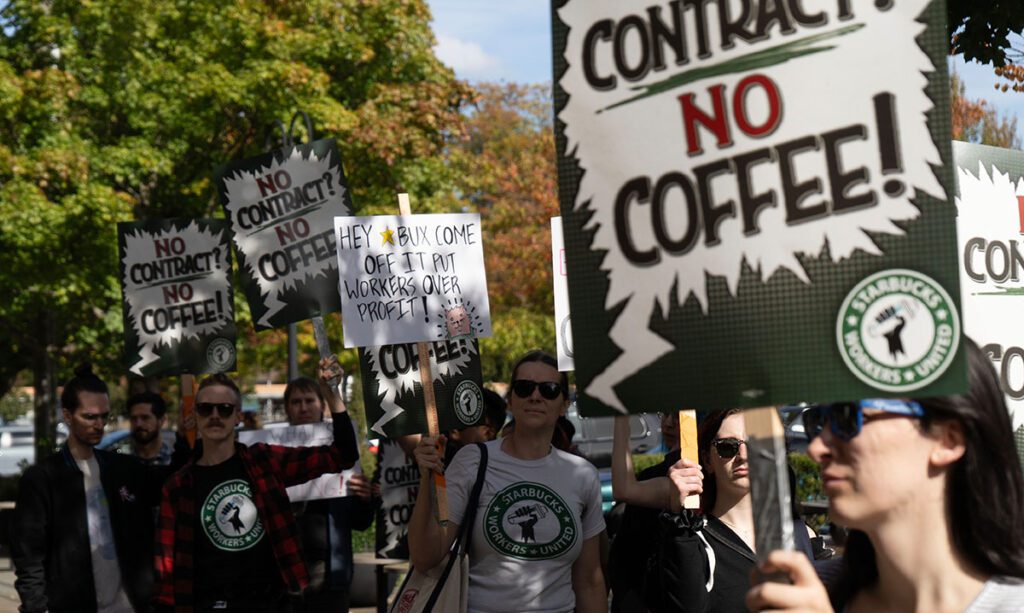
Outraged by the sudden move by executive leadership, workers from around the area formed in front of Starbucks headquarters in protest of the decision. “They have doubled down on union busting and putting profits over people,” proclaimed two year Roastery worker Cecilia Coulter, “but our union collectively in this last week has continued to show that people over profits is what’s going to heal this company.”
According to Starbucks CEO Brian Niccol, these stores were chosen because they could not meet financial expectations or offer the type of warm environment for customers the company strives for. Despite the carefully crafted customer experience of the company’s premier roastery, Capitol Hill’s most popular tourist attraction was suddenly shuttered nonetheless. According to District three City Councilmember Joy Hollingsworth, “It was a major attraction and also brought much needed foot traffic to Melrose place.”
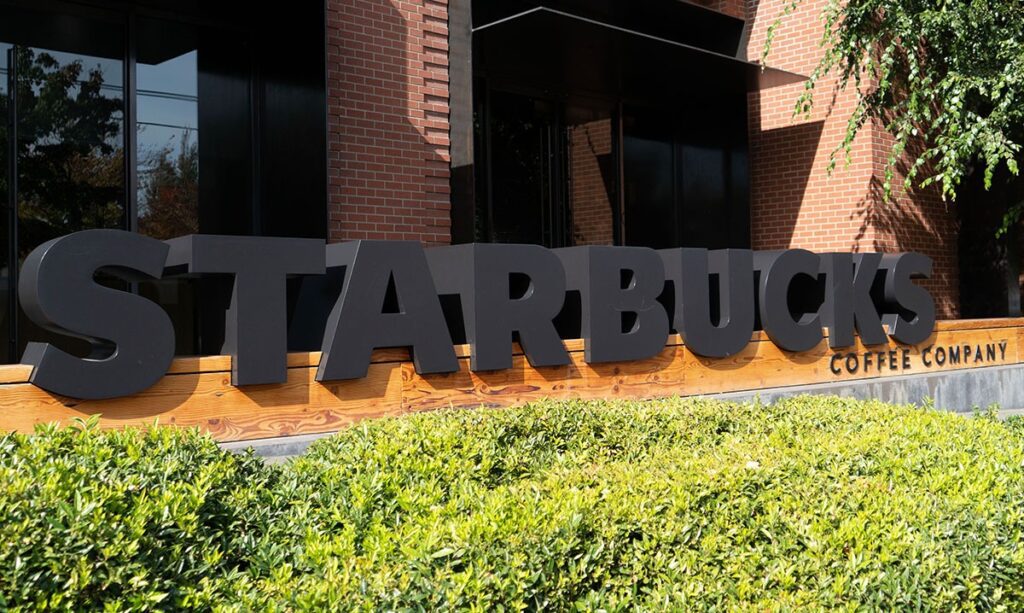
Starbucks’ claims of financial strain are further contrasted with Niccol’s pay in 2024, which reached $96 million, roughly 6,600 times that of a barista. This was for less than 120 days of work after being appointed CEO on Sept. 4.
Tara Hadley, a Georgetown Starbucks employee of 12 years says, “There is no reason for those that create the wealth to be the most vulnerable and targeted. There is no reason not to come to contract with Starbucks Workers United.”
Roastery and Reserve workers were notified that they would receive severance pay through Dec. 5. This is required of Starbucks for all locations that meet the conditions of Washington State’s WARN Act. The law mandates that employers give 60 days notice when layoffs exceed 50 employees. Since Starbucks declined to do so, they are required to provide pay in lieu of notice.
As hundreds of stores nationwide close their doors, including 31 locations across Washington and nine within Seattle, unionized and non-unionized Starbucks workers alike continue to push for good faith bargaining and a fair contract with the company.
Casey Boothe
Driven by curiosity, Casey is studying journalism in the pursuit of using stories to make sense of the world. Since moving to Seattle two years ago, he’s fallen in love with the city’s vibrant culture, especially within the culinary scene. As a Staff Writer for the Collegian, he is eager to highlight stories and people that resonate with the local community. Aspiring to join the long legacy of journalists speaking truth to power, Casey hopes to keep Seattle informed and engaged.

